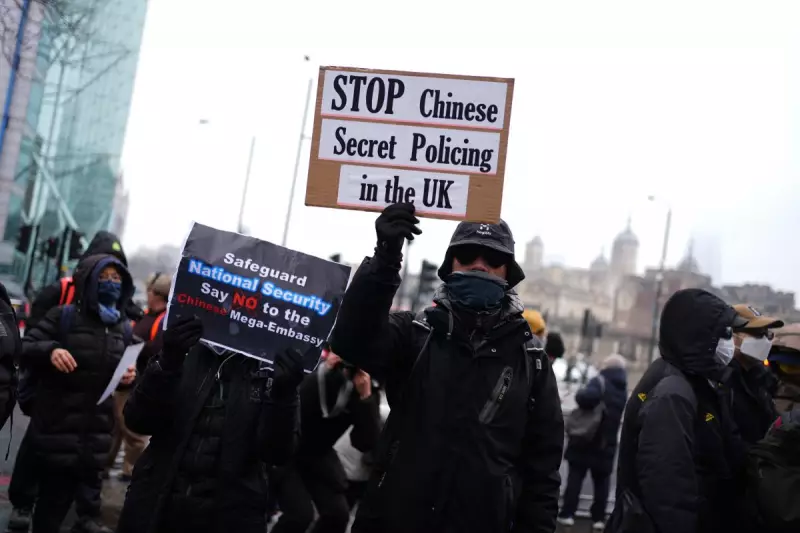
In a startling revelation that exposes the shadowy intersection of diplomacy and corporate interests, newly uncovered documents show that Chinese technology companies officially banned from UK government networks actively pursued high-level access through London's diplomatic channels.
The investigation exposes how firms including Huawei and ZTE, both subject to stringent restrictions over national security concerns, engaged in sophisticated lobbying operations targeting the Chinese Embassy in London. These efforts occurred despite clear warnings from British security services about potential risks associated with these companies' equipment and connections to Beijing.
Diplomatic Channels for Corporate Access
According to documents obtained through freedom of information requests, representatives from these blacklisted firms regularly met with embassy officials to discuss market access, regulatory challenges, and strategic positioning within the UK technology landscape. The lobbying appears to have been coordinated and systematic, suggesting a deliberate strategy to circumvent official restrictions through diplomatic backchannels.
One particularly concerning aspect revealed in the documents is the timing of these engagements. Multiple meetings occurred shortly after the UK government announced stricter controls on Chinese technology in critical national infrastructure, indicating these companies were actively working to counter government security policies.
Security Services Raise Alarm
Security experts have expressed serious concerns about these revelations. "When companies with known security risks use diplomatic protection to advance their commercial interests, it creates significant challenges for national security," explained Dr. Emma Greenfield, a cybersecurity policy researcher at King's College London.
The National Cyber Security Centre had previously issued explicit warnings about the dangers of incorporating equipment from these firms into UK telecommunications networks. Their assessment cited the potential for espionage and the companies' obligations under Chinese intelligence laws that compel cooperation with state security services.
Political Fallout and Transparency Concerns
The lobbying campaign has raised questions about transparency in diplomatic-corporate relations and whether sufficient safeguards exist to prevent potentially compromised technology companies from influencing policy through embassy connections.
Several MPs have called for greater scrutiny of how foreign technology firms interact with diplomatic missions in the UK. "This isn't just about commercial competition—it's about protecting our national security infrastructure from potential threats," stated Conservative MP David Cheney, who sits on the Commons Defence Committee.
The revelations come amid growing tensions between London and Beijing over technology security and increasing scrutiny of Chinese investment in critical UK infrastructure. As the government develops its new semiconductor strategy and reviews telecommunications security, these documents highlight the ongoing challenges in balancing economic opportunities with security imperatives.





